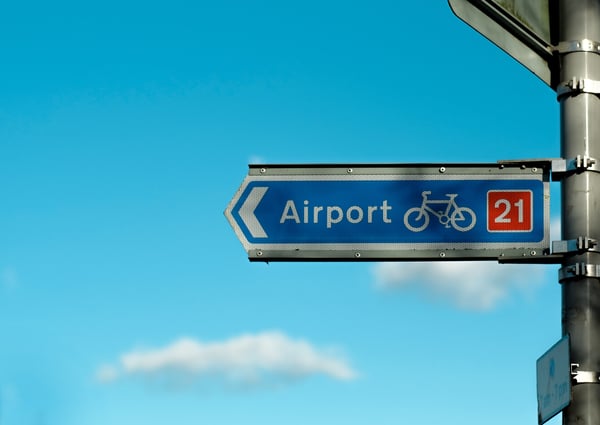Sustainable travel is, by definition, problematic, because unless you’re getting from A to B on a cloud of biodegradable fairy dust, there will be some sort of negative impact on the environment.
Even cycling has an impact on mother nature. Take bicycle tyres as an example: a 2017 report by the International Union for Conservation of Nature estimated that tires account for as much as 28% of overall microplastic waste in the world’s oceans.
Tyres are among the most common plastic polluters on earth, and that’s before we’ve even started on the environmental consequences of their manufacture, and all that un-recyclable elastane present in the lurid swathes of Lycra cyclists use to adorn their puffing bodies.
So, to summarise, when we say ‘sustainable’, think ‘responsible’ and we’ll have a clearer understanding of where we’re at.
Sustainable travel or sustainable tourism is, essentially, using a bit of common sense when it comes to selecting various modes of transportation for your trip. You know, like maybe hiring a boat to tackle the 30 minute trip from Westray to Papa Westray in the Scottish Orkney Islands and not taking Loganair’s 90 second, 2.7 km flight between the same two points.
And obviously, cycling is better than driving a car to work, so don’t write in about the first paragraph. I digress, this article is meant to be all about sustainable travel … But how does this work ‘part-time’?

Of course, it’s far better to be a ‘part-time’ sustainable traveller than a completely and utterly irresponsible, rainforest-razing one: you’re saving (half) the planet, keeping (half) our seas free of contamination, preventing (half) of the ice shelf from melting. You’re quite literally half-way to becoming a full-time responsible traveller, which is great. But I’d also argue that approaching anything significant with a ‘part-time’ attitude, in this instance the boiling planet, is also a bit, well, lazy, especially when you’re almost over the line.
So, how about trying to expand the part-time aspect, not just by direct action (cycling or taking the train when you don’t need to take the car), or taking the short flight to your vacation destination in economy and not attempting to circumnavigate the globe business class etc., but also by thinking a little more laterally about travel and pollution.
You don’t need to physically be on the plane or in the lorry to be a part-time part of the problem. Take shopping online as one of many examples, inadvertently employing a host of planet sapping transportation to bring stuff to your door.
You can do an enormous amount of planet-loving good just by shopping locally, especially when it comes to foodstuffs and in particular, meat.
In the latter instance, everyone knows that beef is probably the most destructive food known to humankind and that’s before we’ve even destroyed a single cow.
But it doesn’t have to be like that, if we were to spend a bit more of our hard-earned cash eating food that’s been produced locally, and not some flown-in processed matter from a fast-food outlet, you might even make up the slice that takes you from part-time sustainability to full-time responsibility.
Now there’s food for thought.
